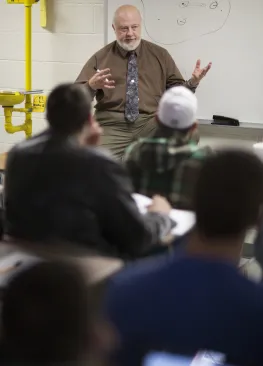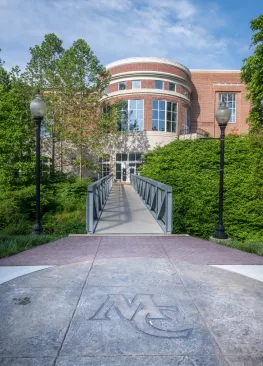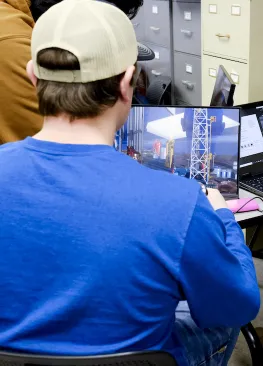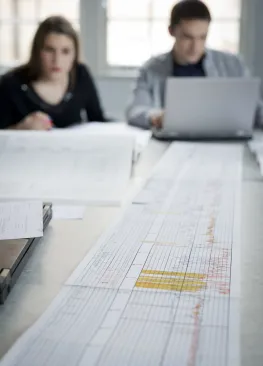Expand Your Options in Energy Systems
Marietta's Energy Systems Engineering program is designed to offer both non-science and science students a strong foundation of knowledge in energy sources with a secondary focus on the environmental, social and economic aspects of energy systems and energy utilization. This minor provides students with unique, marketable skills in the job market and for potential graduate schools.
A great complement to students majoring in science or engineering programs, the Energy Systems Engineering Minor prepares them for entry-level positions in many sectors of the energy industry, graduate school, government service, and life-long learning and professional development.




What You'll Learn
Students gain knowledge in the areas of resources, generation, transmission, utilization and environmental impact as each pertains to energy systems. Students learn introductory social and economic analysis experience with renewable and non-renewable energy sources, and are able to address global environmental and sustainability issues related to energy.
Explore All Sources of Energy
Explore all sources of energy — from traditional, such as fossil fuels and nuclear, to renewable — through lectures, research, and lab work.
Liberal Arts Approach
With Marietta's liberal arts approach to education, students in this program will become effective communicators with strong critical thinking skills.
More Info
Housed in the Center for Earth, Energy and the Environment, the Energy Systems Engineering minor prepares students to succeed in energy-related fields and in graduate school.
FAQs
- What do Energy Systems Engineers do?
They oversee complex energy conversion and distribution systems, work to improve energy storage systems, and manage the efficient use of energy in building, manufacturing, and processing systems. These professionals also study the secondary effects of energy usage from a local environmental impact, regional and national economic impact, and global climate change perspective.









